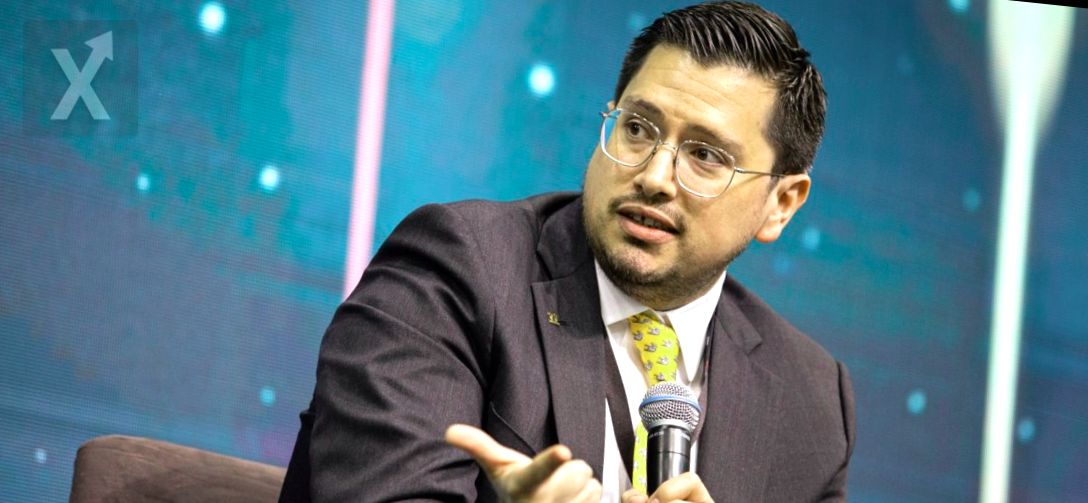Infonavit: A Record of 2.4 Trillion Pesos in Assets According to Carlos Martínez

Just under two weeks before leaving his position as CEO of Infonavit, Carlos Martínez Velázquez proudly stated that “the finances are at their best point. We are closing with an Infonavit that manages a financial balance of 2.4 trillion pesos in assets, the highest figure in its history.” The increase in assets is primarily attributed to higher employer contributions, a result of the wage policy promoted by the president, which has allowed for “effective asset management, not only generating new loans but also restructuring a good portion of the existing portfolios,” Martínez Velázquez commented in an interview with Expansión.
No Concerns About Delinquency
According to Martínez, another important aspect is the management of Infonavit's investment fund, which currently stands at 760 billion pesos, up from just 146 billion, equivalent to about 29% of Infonavit's assets. This investment fund is long-term and has a diversified portfolio, with 54% in government debt and the rest in variable income instruments, Fibras, among other things. “The investment fund hasn’t just grown - it has multiplied by more than five times - we also managed to diversify it and manage it internally,” emphasizes the CEO, who notes that previous administrations had outsourced it. “What we did was create internal capabilities and train personnel for its operation,” he added. In the short term, he clarifies, “as long as the wage policy continues to increase, there won’t be a need to draw on the investment fund. As long as income exceeds expenses, we’ll continue to have a surplus that can be allocated to construction.” According to the institute's projections, next year it’s expected to allocate between 40 billion and 50 billion pesos for housing construction “without touching the investment fund.” In previous years, during the administrations of (Vicente) Fox and (Felipe) Calderón, there was no capital to lend, which led to 'securitizing' mortgages between 2010 and 2015. Nowadays, there are enough resources to lend, build, and maintain the investment fund,” he underscores. On the issue of delinquency, Martínez believes that “it’s not concerning.” Currently, the past-due portfolio is around 18%, a figure that will decrease as loans are converted from times minimum wage (VSM) to pesos and as “old” loans are closed. The delinquency rate for loans in pesos is at 9%, while for loans in VSM it reaches 25%. “That’s why making that conversion is crucial.” Martínez estimates that delinquency will remain at similar levels for the next two years. “I don’t want to blame anyone, but the loans granted during (Felipe) Calderón’s administration were risky, expensive, and in underserved areas. Who was going to pay them? It was a burden,” commented the outgoing director of the institute.
A Focus on Austerity
“By 2030, what I did can be evaluated. Collecting on the portfolio takes a lot of time because these are 30-year contracts, so the important thing is to have originated those loans properly; that they are repayable and that the assets you generate with those loans maintain their value over time,” he clarifies. Among the failures of past administrations is mentioned lending to people who could not afford the payments, thanks to subsidies granted in difficult-to-live-in areas; additionally, “these are assets that over time lose their value. There are regions where a house bought for 400,000 pesos hasn't appreciated; it has lost value because it remains at the same price,” he laments. Loans in pesos “are paid off more quickly because the 5% employer contribution goes toward the principal from day one. We are creating a healthier portfolio for the future. As the old portfolio decreases, the past-due portfolio will also decrease,” he assures. Following the policy of President Andrés Manuel López Obrador, Infonavit reduced its budget in the first year from 0.45% to 0.23% of the institute’s total assets. “In real terms, we have reduced our budget year after year.” To achieve this, several measures were implemented, such as adjusting salaries to the federal government's scale and reducing benefits for new contracts. This involved renegotiating the collective labor agreement (CCT) with the union. The administration also implemented a system for procurement and public bidding, previously 93% of the budget was executed through direct awards. “Today the ratio is around 50/50. Last year, practically 70% of the budget was bid,” he highlighted. The savings obtained have been used to improve infrastructure, enabling 21 new offices across the country, “without real increases.”
It is essential to mention that proper resource management and financial discipline are key to the sustained growth of any entity. Infonavit is demonstrating how good asset management and a policy of austerity can help create a favorable environment to boost housing construction, as long as financial health is maintained and long-term projects are prioritized, which will benefit many Mexicans in the future.





